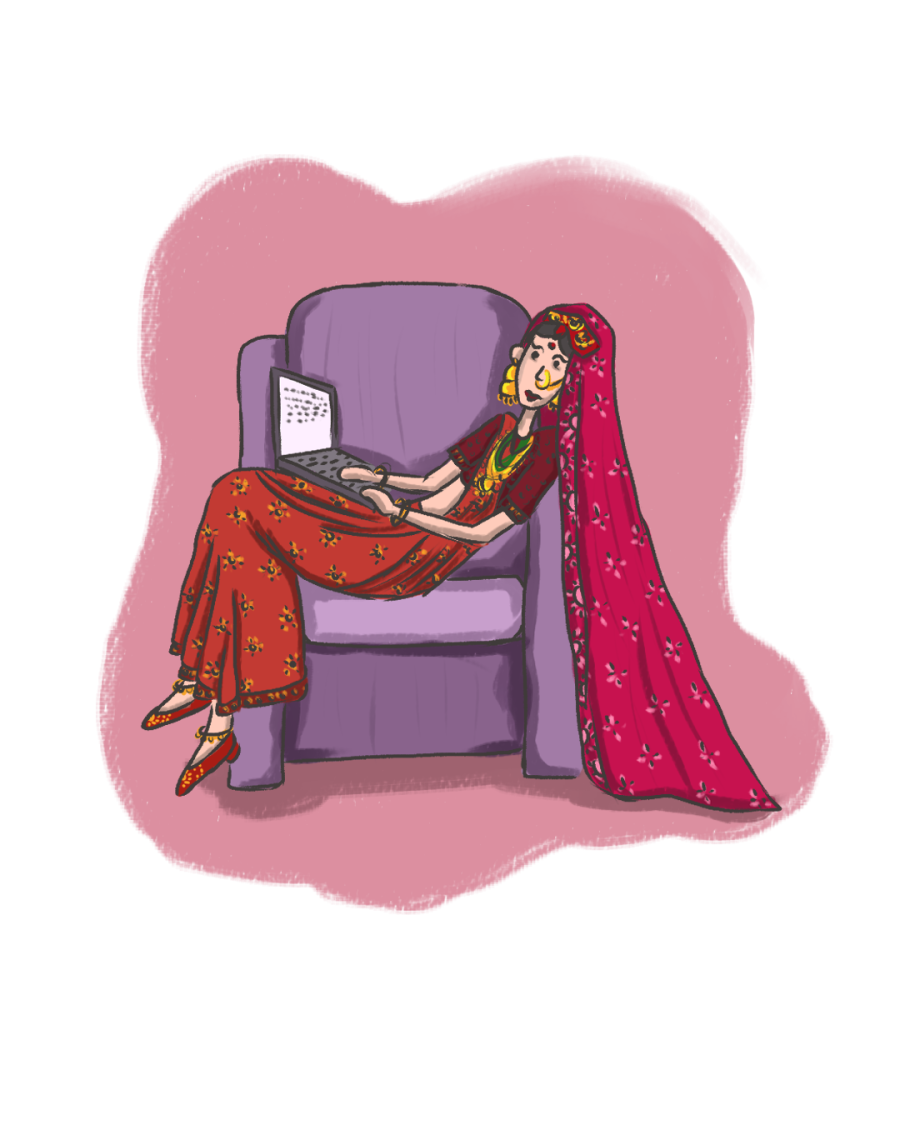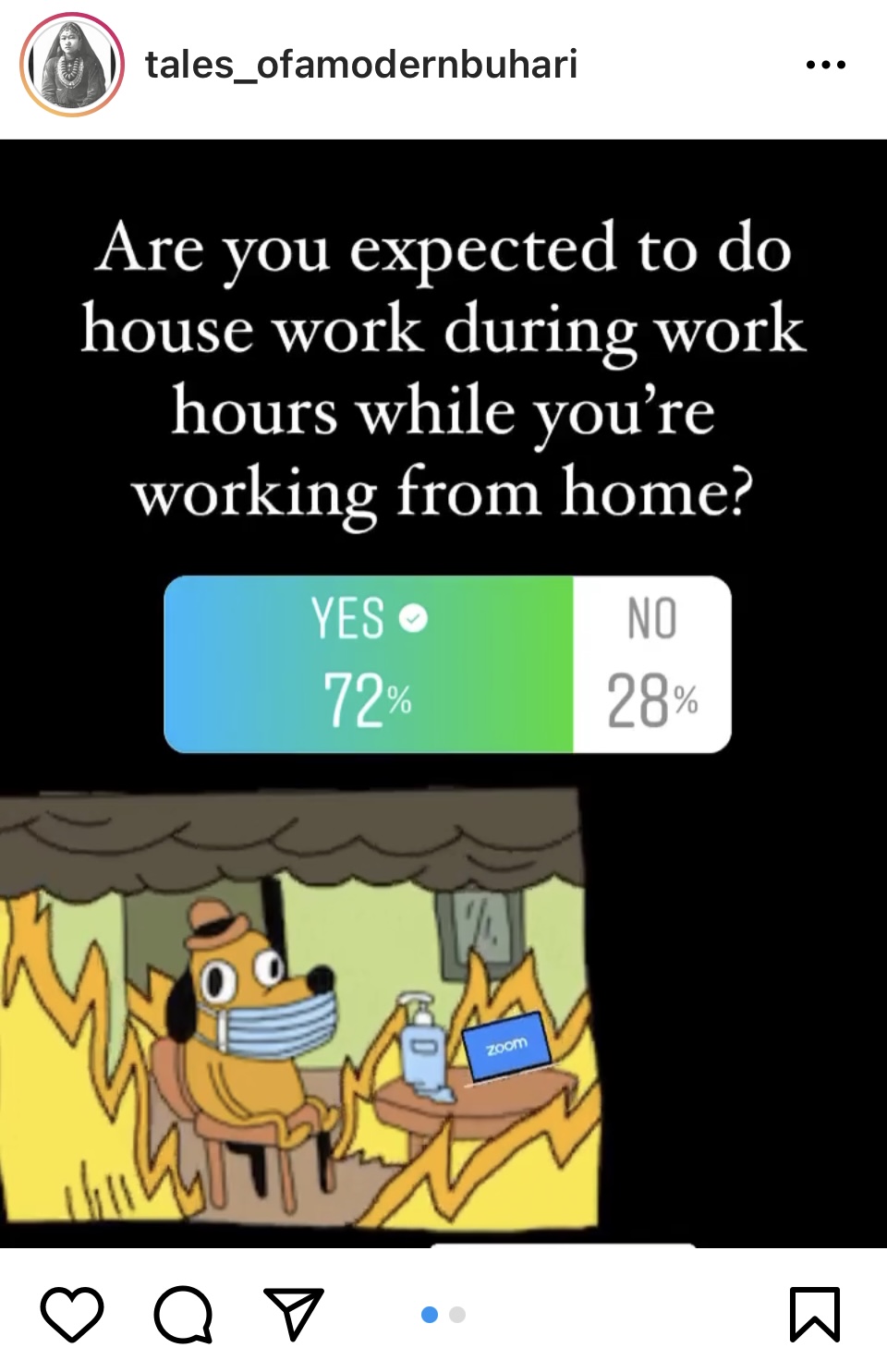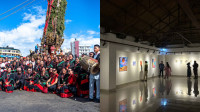Culture & Lifestyle
So what does it take to be a modern buhari?
Tales of a Modern Buhari, an anonymous feminist account on Instagram, has become a safe space for urban Nepali women to share their experiences of being a woman in a patriarchal society.
Srizu Bajracharya
Every woman will tell you that at some point in their life they have had people tell them what a married woman should be like. From not questioning the patriarchal norms of the society, forsaking professional ambitions to becoming the dutiful caretaker of the family, the society’s list of dos and don’ts for a married woman, the daughter-in-law is a long one.
But perhaps, every woman, married or not, will also be able to tell you stories about men who feel that it's their birthright to be treated as ‘kings or princes’ of the family.
Last October, ‘Tales of a Modern Buhari’, an Instagram page, started a conversation on this very topic—‘The Raja Babu Syndrome’ aka ‘maharaj dhiraj’.
In one of its posts, it went on to explain the syndrome.
“Being a Raja comes with many responsibilities, but this Raja babu thinks he has little to no responsibility in the household. Raja babu thinks all household work is beneath him, and the only thing important to run a household is his work,” it read.
“He is a very matteko (brazen) pulpulayeko (coddled) chora (son) who expects to be pampered and pulpulayeko as a husband, too. Raja babu is so accustomed to things being done for him that he feels it’s his birthright,” an another post emphasised.
“It was so funny and raw. It was one of the first posts I came across from Tales of a Modern Buhari, and I remember thinking the posts were all very relatable,” said Veera Lamichhane, a researcher of international relations in South Asia. “I even shared the post with my friends and cousins, and we discussed the topic as well. I love the page, and I often browse it for new content.”
In a deeply patriarchal country like Nepal, married women are discouraged from discussing their objections to the patriarchal norms of the society. Before women get married, many of them are told the matter of family’s pride is in their hands and that they must not tell other people about the things that go in their family.
This social reality was what inspired the person behind ‘Tales of a Modern Buhari’ to start the platform. The creator of the page talked to the Post on the condition that her identity be kept anonymous and the person will henceforth be identified as Modern Buhari in the article.
It didn’t take long for the Facebook and Instagram accounts of ‘Tales of a Modern Buhari’ to get noticed and garner curiosity. Women who followed the account from its early days say the posts were very relatable and were happy conversations around the topic was finally taking place.

Soon, married women started sending their experiences of subtle and not-so-subtle gender-based discrimination in their married life and many found the downright personal anecdotes compelling and, most importantly, relatable.
For example, a woman shared on the account’s Instagram page how her mother-in-law got furious when she tried to explain that she doesn’t feel blessed to have a husband who does household chores. “When a man does household work, the wife and the mother do not become blessed. That is something they have to do and they are not doing any charity for us. I thought she [mother-in-law] would take it well. But it backfired. She got all angry and she stayed angry for two days. I should have kept my perspective to myself,” she wrote.
“Although the identities of the women sharing their stories on the page are kept anonymous, the details of the stories and the experiences are very relatable. Reading about other women’s experiences provides assurance to many of us that we are not alone in this,” said Priya Joshi, co-founder of MakerKT, an organisation that advocates a ‘maker’ culture for women.
And that, says the page’s admin, was precisely the idea behind the page—to give women a platform to share their experiences and emotions without the fear of being judged.
“Before marriage, my idea of gender discrimination were limited to gender pay gap and gender-based workplace discrimination. But after I got married, I started seeing many subtle gender discriminations at home. So subtle that they have been widely accepted,” said Modern Buhari over a Zoom interview with the Post.
“Even my friends who got married felt the same. However, whenever we would talk I noticed that we would filter out information due to our fear of tarnishing our family’s name. It hit me then that there must be many like us—people who are forced to keep their experiences and sufferings to themselves for fear of judgements.”
The inability to talk about these subtle discriminations openly, says Modern Buhari, is a rude awakening for many women to the reality of marriage.
“Marriage is painted as rainbows and butterflies but things that follow after are not always that. Which is why I thought an anonymous page where people could pour their hearts out would be a good idea,” she said.
Ever since its inception, many women have shared their personal stories related to marriage—from in-laws’ expectation from buhari, issues of dowry, pregnancy, menstruation to sexual pleasure. The page has also discussed financial independence, sexual abuse, divorce and voluntary childlessness.
Tales of a Modern Buhari’s Instagram page has more than 8,000 followers and the community is only growing.
“I think the page works because it is anonymous, which makes it so much easier. A lot of people have come forward and shared their experiences on the page also because my identity is anonymous, and since they don’t know who I am, they are not afraid of being judged,” said Modern Buhari.
According to Lalita Bashyal, a sociologist and a lecturer at Madan Bhandari Memorial College, the page wouldn’t have gained as much traction had the page’s admin not kept the identity of the women anonymous.
“Anonymity is powerful in that way. It lets you speak your mind and be honest about your experiences. We would like to think that our society is progressive but the fact that many are only willing to share their experiences by keeping their identity anonymous says a lot about our societal structure, which uses every tool there is to suppress and discourage such conversations,” said Bashyal.
At first glance, ‘Tales of a Modern Buhari’ may seem like a space for women to vent, but it has shown that it is more than just that by starting conversations about important issues.
Just a month ago, the page encouraged people to share their #MeToo stories with the hopes of restarting the discourse on Nepal’s #MeToo movement.
“I told myself if only one person would tell her story, that would be a success for me. This movement could have been bigger. But given it’s a difficult topic and since we still don’t have such a huge following, the topic failed to gain a good momentum on the page,” said Modern Buhari. “But many did come forward to share their stories and we ran stories for a month.”
When Tales of a Modern Buhari encouraged its followers to share their #MeToo stories, Priya Joshi was excited and hoped that it would gain momentum.
“When I didn’t see the page sharing any stories, I even sent a message to the page’s admin asking if people had sent their #MeToo stories. The next day, in the hopes of encouraging people to share their stories, I tagged the page and made a post detailing my own #MeToo story. Although so many women showed their support and love after I shared my story, what was also evident was that most men were still not ready for the conversation,” said Joshi, who also runs and manages the Instagram page aama.mama, which discusses, helps and educates women about motherhood.
On April 15, ‘Tales of a Modern Buhari’ also asked its followers who have opted to remain childfree to share their experiences. Since then, many have come forward and shared their stories and thoughts on the subject.
The page’s effort to start a discussion on such a topic is commendable and admirable, say the page’s followers the Post talked with.
“I think the page has become a reliable safe space for women to share their experiences and opinion on a wide range of issues that matter to them,” said Veera Lamichhane, the researcher.

In the course of a few months, Tales of a Modern Buhari has seen growing support from people. Many of the page’s followers say that they consider the page trustworthy and that regardless of the topic being discussed, the page always presents both sides to a story.
It’s also obvious that most followers of the page are women. But even men who follow the page say they find the content meaningful.
“The content is informative, interesting and witty,” said Raj Shrestha, a chef at Traditional Stay in Patan. “I come from a family surrounded by women and I am soon going to get married. The page has allowed me to know so much about women and how they view the world and the many issues in it,” said Shrestha.
Men are never encouraged or taught to see the perspective of women, says Shrestha.
“If we are to better our society, it is important for men to look at the world from women’s perspective,” adds Shrestha.
People may argue that online conversation hardly leads to real-world impact but there are things to be optimistic about, says Bashyal, the sociologist.
“People will carry the information they have read with them, and we can be hopeful that in some way it will influence society after all you cannot undermine the power of technology in this era,” said Bashyal. “Although women still find it unsafe to communicate sensitive experiences publicly, there might come a time when that too will change.”
With the kind of conversations, the page has brought about one would think people would be curious to know who runs the page. But followers of the page the Post talked to say they are more interested in the kinds of discussion the page has put forward than the identity of the person behind the page.
“I imagine the admin is someone like me. Someone who believes in feminism and doing her part in creating a safe space for women like us to discuss issues that matter to us,” said Joshi.




 8.88°C Kathmandu
8.88°C Kathmandu















